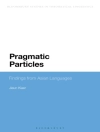Although genre studies abound in literary criticism, researchers and scholars interested in the social contexts of literacy have recently become interested in the dynamic, rhetorical dimensions of speech genres. Within this burgeoning scholarly community, the authors are among the first researchers working within social science traditions to study genre from the perspective of the implicit knowledge of language users. Thus, this is the first sociocognitive study of genre using case-study, naturalistic research methods combined with the techniques of rhetorical and discourse analysis. The term "genre knowledge" refers to an individual’s repertoire of situationally appropriate responses to recurrent situations — from immediate encounters to distanced communication through the medium of print, and more recently, the electronic media. One way to study the textual character of disciplinary knowledge is to examine both the situated actions of writers, and the communicative systems in which disciplinary actors participate. These two perspectives are presented in this book. The authors’ studies of disciplinary communication examine operations of systems as diverse as peer review in scientific publications and language in a first grade science classroom. The methods used include case study and ethnographic techniques, rhetorical and discourse analysis of changing features within large corpora and in the texts of individual writers. Through the use of these techniques, the authors engaged in both micro-level and macro-level analyses and developed a perspective which reflects both foci. From this perspective they propose that what micro-level studies of actors’ situated actions frequently depict as individual processes, can also be interpreted — from the macro-level — as communicative acts within a discursive network or system. The research methods and the theoretical framework presented are designed to raise provocative questions for scholars, researchers, and teachers in a number of fields: linguists who teach and conduct research in ESP and LSP and are interested in methods for studying professional communication; scholars in the fields of communication, rhetoric, and sociology of science with an interest in the textual dynamics of scientific and scholarly communities; educational researchers interested in cognition in context; and composition scholars interested in writing in the disciplines.
Carol Berkenkotter & Thomas N. Huckin
Genre Knowledge in Disciplinary Communication [PDF ebook]
Cognition/culture/power
Genre Knowledge in Disciplinary Communication [PDF ebook]
Cognition/culture/power
Kup ten ebook, a 1 kolejny otrzymasz GRATIS!
Język Angielski ● Format PDF ● Strony 208 ● ISBN 9781134956159 ● Wydawca Taylor and Francis ● Opublikowany 2016 ● Do pobrania 3 czasy ● Waluta EUR ● ID 4889100 ● Ochrona przed kopiowaniem Adobe DRM
Wymaga czytnika ebooków obsługującego DRM












